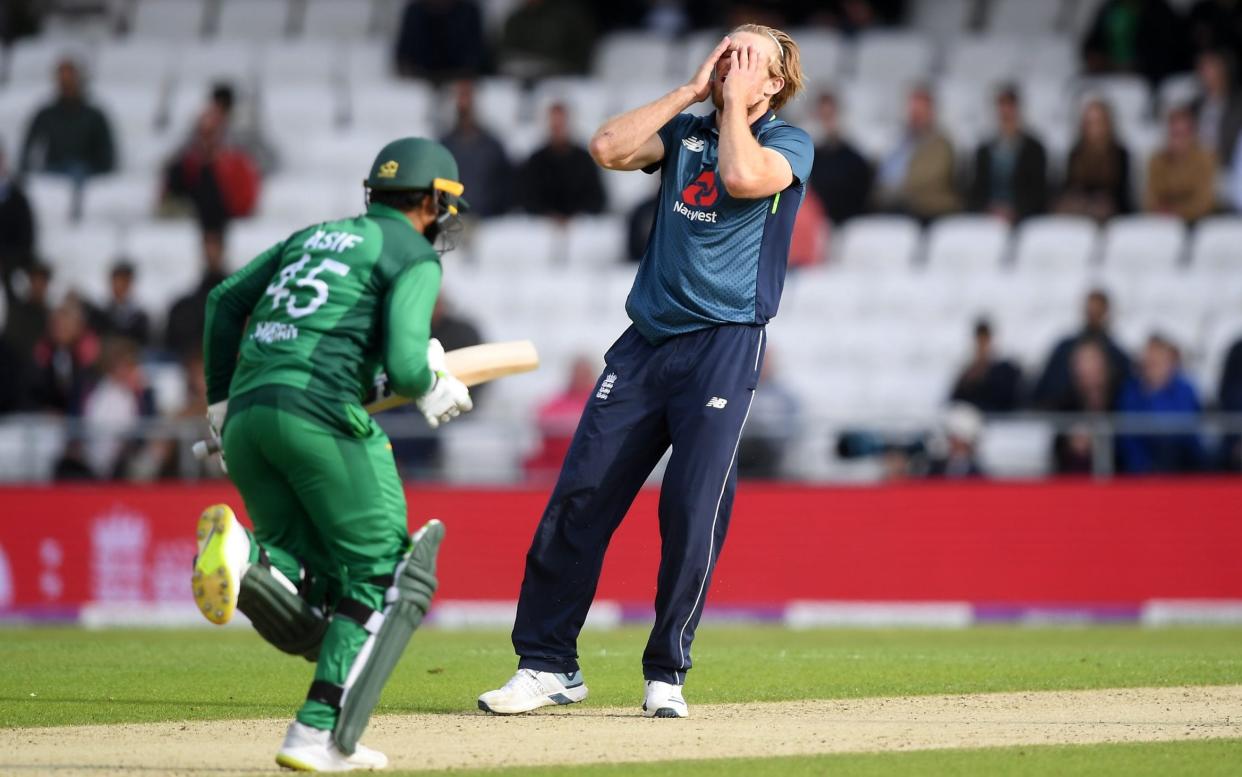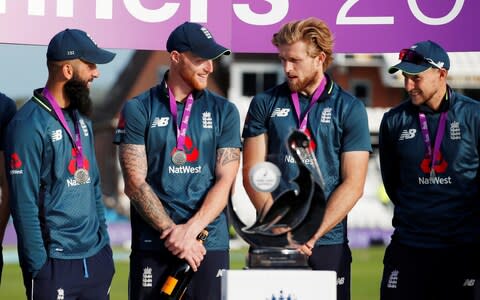David Willey misfires when he needed a performance to leave World Cup spot in real doubt

It was in Malahide four years ago, the match better known as marking the end of Peter Moores’s England career, that David Willey’s involvement with England’s one-day international team began.
As England rebuilt from the debris of the 2015 World Cup, Willey was entrusted to help shape their new team. Combining left-arm swing - which had dominated the World Cup, but England conspicuously lacked - with belligerent ball-striking and a singular competitiveness, he made for a compelling package. Willey’s penchant for new-ball wickets suited England’s new blueprint for playing ODI cricket. With England preparing flatter pitches at home to empower their batting line-up, scores soared. The only way to prevent batting carnage was to attack in the field, in those precious few overs when it swung.
The concern about Willey was not what he did with the new ball, but what came after. Willey’s pace - his average is around 80mph - has always been on the edge of what was passable in international cricket. He had to overcome this limitation through his swing and force of personality, as if daring batsmen to hit him to shut him up. Away from home, where the ball swings less, Willey has been notably less effective.
And so, for all his value as a three-dimensional cricketer, Willey has spent the last four years oscillating between the first choice XI and hovering just outside it, playing 46 of England’s 86 ODIs since the 2015 World Cup. In the Champions Trophy two years ago, England’s most important ODIs between the two World Cups, Willey was in the squad but not selected in any game.
All the while, Willey has attempted to evolve as a cricketer. Every year since 2015, he has gained a little pace - his average pace has risen from 79mph in 2015 to 81.6mph so far in 2019. His performance at the Rose Bowl in the second ODI, when he bowled wide yorkers outstandingly at the death to help England defend 373, again showcased his temperament under pressure, a point made by his terrific all-round display in the World Twenty20 final in 2016.

Yet as he has acquired pace, Willey has also shed a little of what made him so dangerous opening the bowling. His average swing in the first ten overs has fallen 25 per cent from 2015 to 2019, according to CricViz. From taking nine wickets at 17.6 apiece in the Powerplay in 2015, he has taken five at 73.2 since 2018. He has also lacked venom in the middle overs; he has taken a solitary wicket while conceding 196 runs in this phase of the game since 2017.
Still, none of this obscures that the uncertainty over Willey’s position owes to England’s strengths. With Mark Wood spectacular in the Caribbean and Tom Curran enjoying a brilliant six months, Jofra Archer’s emergence has left Willey as the most vulnerable pace bowler in the squad, no matter the point of difference provided by being a left-armer.
As Willey took the new ball at Headingley, he did so as a man balancing the requirements of the team with his own need to make himself indispensable. While Chris Woakes was feasting on Pakistan at the other end, there was a little sense of Willey overstraining. His first four-over spell included a couple of wides, with the ball swinging past leg, and some erring in length, yielding 26 runs without taking a wicket. He may not have found the jest of a fan in the crowd, armed with a ‘Willey get a wicket’ sign, entirely amusing.
When Willey returned, with the fate of the match long sealed, he induced Asif Ali to mistime a pull. But ending with a rank full toss, harrumphed over extra cover, left Willey with figures of 1-55 from nine overs.
It added up to an unremarkable performance at a time when Willey needed a remarkable one. It would take England surprisingly selecting six specialist pace bowlers in their final World Cup 15, and no back-up spinner, for Willey to avoid losing his place in their provisional squad.
For four years Willey has been an admirable part of England's ODI journey, a man who has given all of himself to forging a role in this world-leading side. Now, a selection meeting will determine his World Cup fate.

 Yahoo News
Yahoo News 
